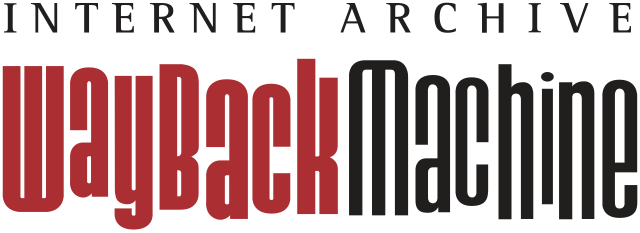The Internet Archive: A Gateway to Digital Preservation
Archive is a nonprofit organization committed to preserving digital content and ensuring it remains accessible for future generations. Since its inception in 1996, it has grown into one of the largest digital libraries in the world. With an extensive range of offerings like the Wayback Machine, free books, movies, and vintage software, it has become a cornerstone of online knowledge.
1. What is the Internet Archive?
The Internet Archive is a vast digital repository designed to store and provide access to billions of pieces of content. From preserving web pages to offering free educational resources, it serves as a global library of knowledge.
- Wayback Machine: Archive snapshots of websites dating back decades.
- Digital Libraries: Over 37 million books and texts available for free.
- Multimedia: A collection of over 14 million audio files, videos, and images.
- Software Archives: Play classic games and run vintage programs online.
2. Why the Internet Archive Matters
The Internet Archive preserves the digital world, ensuring that valuable information isn't lost. Here's why it's essential:
- Historical Reference: Researchers can explore historical snapshots of websites.
- Cultural Heritage: Documents endangered content from around the web.
- Educational Value: Provides students and educators with a free, reliable knowledge base.
- Global Impact: Accessible worldwide, supporting open access to information.
3. How to Use the Internet Archive Effectively
Navigating the Internet Archive can be overwhelming due to its vast content. Here are some practical tips:
- Access Web Archives: Use the Wayback Machine to explore historical versions of websites.
- Search the Digital Library: Use search filters to find specific books, videos, or audio files.
- Interact with Vintage Software: Emulators let users run old software directly in their browsers.
- Download Resources: Save content like eBooks and videos for offline use.
4. Alternatives to the Internet Archive
If you're looking for alternatives to the Internet Archive, consider these platforms:
- Google Books: A comprehensive digital book repository.
- Project Gutenberg: Focused on free eBooks, especially in the public domain.
- HathiTrust: A collaborative library with millions of digitized texts.
- Open Library: A sister project of the Internet Archive that allows book lending.
- Digital Public Library of America (DPLA): Offers curated digital resources from libraries across the U.S.
5. Lesser-Known Features of the Internet Archive
Beyond its popular tools, the Internet Archive has several hidden gems:
- TV News Archive: Access archived TV news broadcasts for research purposes.
- Internet Arcade: Play vintage arcade games right in your browser.
- NASA Collection: Explore free resources from NASA, including images and videos.
- Web Tools for Developers: APIs for web developers to access archived data.
6. FAQs About the Internet Archive
- Q1: Can anyone use the Internet Archive? Yes, the Internet Archive is free and open to everyone globally.
- Q2: How often is the Wayback Machine updated? The Wayback Machine constantly archives content, but updates depend on the website's inclusion frequency.
- Q3: Can I donate to the Internet Archive? Absolutely. Donations help fund its operations and ensure the preservation of digital resources.
- Q4: Is the content on the Internet Archive legal? Yes, it operates within copyright laws and adheres to fair use principles, but access may vary depending on the region.
- Q5: How do I request content to be archived? You can submit a URL directly to the Wayback Machine for archiving.
7. The Future of Digital Preservation
The Internet Archive isn't just about preserving the past; it's about building a bridge to the future. With advancements in artificial intelligence and data storage, the Internet Archive is continually evolving to meet the demands of a digital-first world.
As data continues to grow exponentially, its mission to preserve and provide access to knowledge becomes even more vital. Whether for education, research, or personal exploration, the Internet Archive ensures that the wealth of digital information remains accessible for generations to come.
8. Conclusion
The Internet Archive is more than just a library; it's a lifeline for the preservation of digital culture. By offering open access to a vast range of resources, it supports a global community of learners, researchers, and innovators.
If you haven't explored it yet, now's the time. Dive into the Internet Archive and unlock a world of information that's free, accessible, and timeless.

